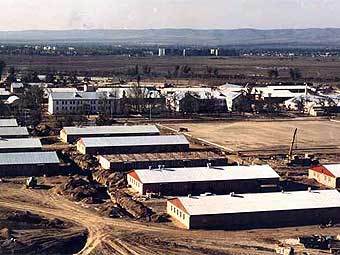25 August 2015, Tuesday
 On 25 August 2015 RJI made two submissions to the Committee of Ministers of the Council of Europe (CoM) concerning various aspects of the execution of the judgment in the case of Israilova and others v Russia. The applicant’s son, Sharpuddin Israilov, disappeared in December 2002 from Khankala military base in Grozny.
On 25 August 2015 RJI made two submissions to the Committee of Ministers of the Council of Europe (CoM) concerning various aspects of the execution of the judgment in the case of Israilova and others v Russia. The applicant’s son, Sharpuddin Israilov, disappeared in December 2002 from Khankala military base in Grozny.
In the first submission, RJI describes its attempt to bring the issue of domestic remedies for disappearances in the North Caucasus to the attention of the Constitutional Court of the Russian Federation following the entry into force of the Aslakhanova and others v Russia judgment. The European Court found in the Aslakhanova judgment that the non-investigation of disappearances in the North Caucasus resulted from “systemic problems at the national level, for which there is no domestic remedy.” The application to the Constitutional Court was the result of a joint effort between RJI and the Institute for Law and Public Policy (Moscow). The applicant in Israilova and others v Russia served as the petitioner before the Court. The rationale for the application to the Constitutional Court was the applicant’s inability, over a period of five years, to challenge this decisions of the domestic investigative authorities on the merits, despite resorting to the judicial review procedure provided for under Article 125 of Russia’s Criminal Procedure Code. The full submission can be read here.
The second submission to the CoM also concerns the Israilova case, describing the applicant’s attempts to obtain access to DNA examinations that supposedly identify human remains as belonging to her son, Sharpuddin Israilov. The applicant was informed in May 2015 that the remains of her son had been found, but the investigative authorities have refused to provide her with copies of the relevant forensic examinations that would allow her to determine whether the remains found indeed belong to her son. The full submission is available here.
 On 25 August 2015 RJI made two submissions to the Committee of Ministers of the Council of Europe (CoM) concerning various aspects of the execution of the judgment in the case of Israilova and others v Russia. The applicant’s son, Sharpuddin Israilov, disappeared in December 2002 from Khankala military base in Grozny.
On 25 August 2015 RJI made two submissions to the Committee of Ministers of the Council of Europe (CoM) concerning various aspects of the execution of the judgment in the case of Israilova and others v Russia. The applicant’s son, Sharpuddin Israilov, disappeared in December 2002 from Khankala military base in Grozny. In the first submission, RJI describes its attempt to bring the issue of domestic remedies for disappearances in the North Caucasus to the attention of the Constitutional Court of the Russian Federation following the entry into force of the Aslakhanova and others v Russia judgment. The European Court found in the Aslakhanova judgment that the non-investigation of disappearances in the North Caucasus resulted from “systemic problems at the national level, for which there is no domestic remedy.” The application to the Constitutional Court was the result of a joint effort between RJI and the Institute for Law and Public Policy (Moscow). The applicant in Israilova and others v Russia served as the petitioner before the Court. The rationale for the application to the Constitutional Court was the applicant’s inability, over a period of five years, to challenge this decisions of the domestic investigative authorities on the merits, despite resorting to the judicial review procedure provided for under Article 125 of Russia’s Criminal Procedure Code. The full submission can be read here.
The second submission to the CoM also concerns the Israilova case, describing the applicant’s attempts to obtain access to DNA examinations that supposedly identify human remains as belonging to her son, Sharpuddin Israilov. The applicant was informed in May 2015 that the remains of her son had been found, but the investigative authorities have refused to provide her with copies of the relevant forensic examinations that would allow her to determine whether the remains found indeed belong to her son. The full submission is available here.
